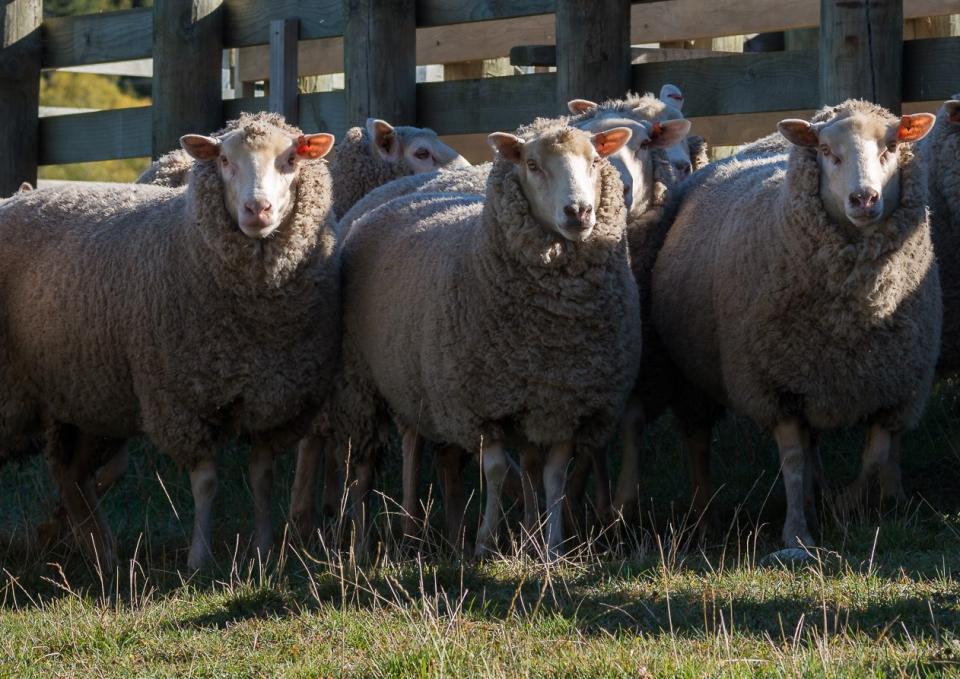A three year R&D project funded by Sainsbury’s has demonstrated use of technology developed in New Zealand can save farmers around $19 million annually.
One of the greatest costs to farmers tending an estimated one billion sheep globally is in lost productivity from parasites and ineffective drench programs. The result of a three year R&D project, funded by Sainsbury’s – the UK’s second largest supermarket chain – has demonstrated use of technology developed in New Zealand can save farmers in their supply chain alone around $19 million annually.
Dunedin based ag-tech company Techion Group’s combination of an internet connected device, data management system and connectivity to veterinary expertise delivers an effective means to manage parasites and drenching programs which affect the health and growth of animals.
“When sheep have worms they can lose their appetite – and so their weight – which compromises their health, welfare and performance. That’s bad for sheep, and a challenge for farmers – because testing for parasites is time consuming and costly if treatment is not carried out effectively,” says Gavin Hodgson Head of Livestock, Sainsbury’s.
“This project was run across Sainsbury’s lamb development group in New Zealand and the UK. It has helped our farmers to diagnose and treat flocks appropriately. It has identified a number of farms where treatments weren’t working and we’ve been able to help farmers improve how they manage parasites.”
The technology replaces the need for farmers to send samples from their animals off to a laboratory and wait for results before they decide how to treat a group of sheep. Greg Mirams, Managing Director of Techion Group is the driver behind the ag-tech company’s focus on increasing productivity and reducing costs based on a sustainable, responsible approach. “Using technology to solve these problems and achieve these goals just makes sense” he says.
“Sainsbury’s has helped validate our system which allows farmers to test for worms reliably, on farm, themselves – saving time and helping them treat flocks appropriately.”
Known as FECPAKG2, the technology works by counting worm eggs in sheep faecal samples helping farmers target their use of drenching, using it only when they need to. Hodgson points out the significance of the technological advance saying “all in all, it’s a more sustainable way of doing things. And we’ve seen some massive successes – in some cases farmers have been able to reduce medication without compromising animal performance by as much as 50% in lambs, and 80% in ewes.”
Working with farmers in Sainsbury’s Lamb Development Group the R&D project trialled more than 100 FECPAKG2 units with farmers conducting more than 1000 tests from close to 300,000 lambs. The results – by detecting a parasite problem (that the farmer was not aware of) and treating with an effective drench chosen based on data – lamb growth can improve by up to 50%. This translates to heavier carcass weights, produced in less time, increasing returns on average by $12 - $15 per lamb.
The study also demonstrated that 37% of New Zealand farmers involved in the project were using ineffective drenches due to previously undetected resistance. The cost of this to each farm is estimated to be $74,974 per year in lost productivity, this equates to $19 million across Sainsbury’s total lamb supply chain.
“By working with Techion Group we’ve been able to highlight the issue of drench resistance, keep our farmers informed of the most effective treatments and increase returns behind farm gates” Hodgson says.
“They don’t have to buy and administer as much medication now, saving time and money and they’ve seen improved growth rates. So, farmers can safeguard animal welfare and meet the expectations of increasingly informed consumers regarding drug use in animal production. They can reduce development of drug resistance by using less, better targeted drenches, improve farm profitability and increase flock efficiency. All while helping us at Sainsbury’s maintain our business values of ‘Sourcing with integrity’ – it’s a win-win-win-win-win.”


